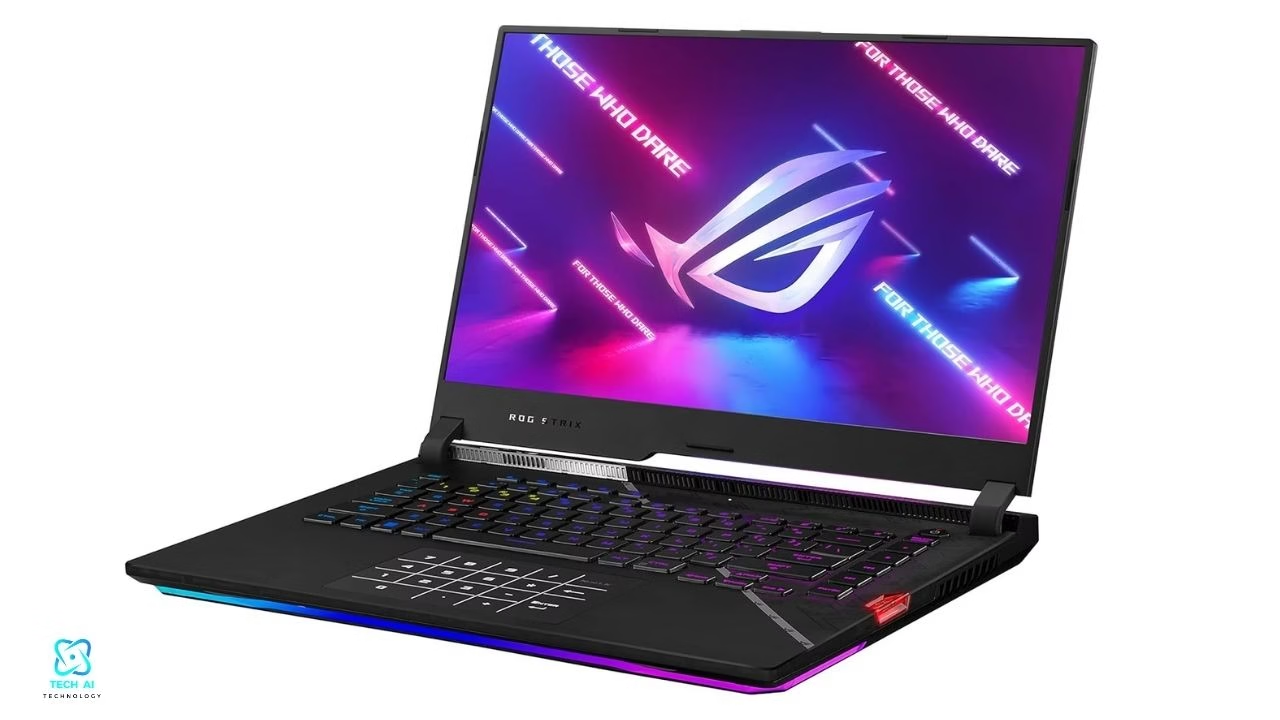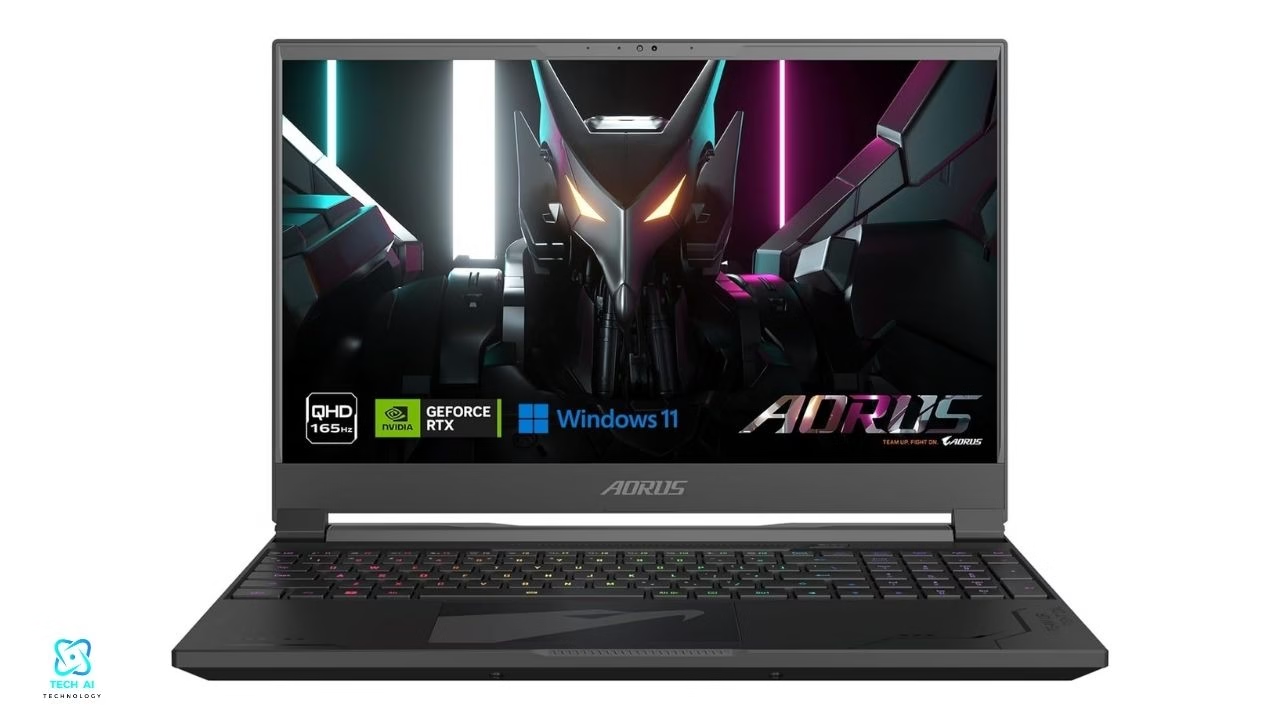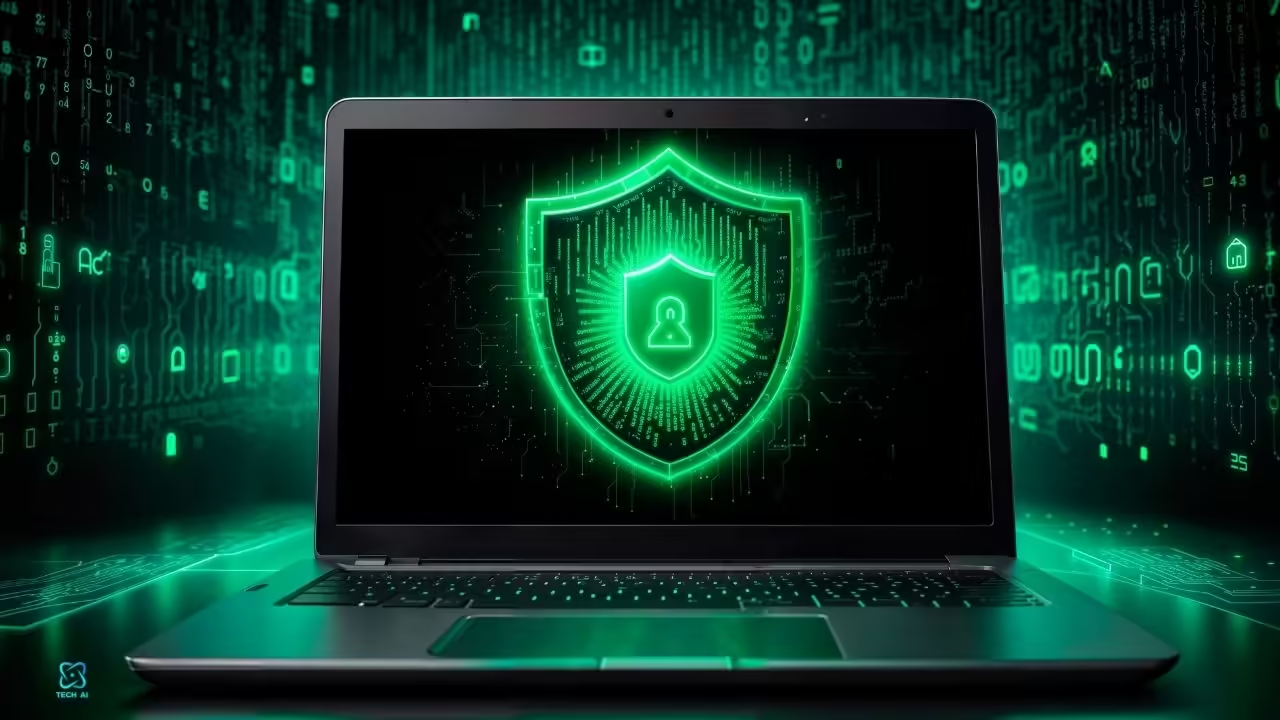Finding the best laptops for cyber security in 2025 isn’t just about raw power it’s about security, performance, and adaptability. As cyber threats evolve, professionals like ethical hackers, penetration testers, and cybersecurity analysts need high performance laptops with secure boot, hardware encryption, and advanced security features to stay ahead.
Whether you’re running Kali Linux, virtual machines, or penetration testing tools, choosing the right machine can enhance both efficiency and protection. In this guide, we’ll break down the top cybersecurity laptops with the latest specs, AI driven security enhancements, and cutting edge encryption, ensuring you get the best mix of speed, security, and durability. 🚀💻🔐
Best Laptops for Cyber security in 2025: Secure, Powerful & Reliable Choices
Which Laptop is Best for Cybersecurity in 2025?
The best laptop for cybersecurity in 2025 should have powerful processing, high end security features, and strong encryption capabilities. It must support virtual machines, ethical hacking tools, and penetration testing software without lag. Cybersecurity professionals, ethical hackers, and IT security experts need devices with advanced BIOS protection, TPM chips, and AI driven security enhancements.
Top choices include laptops with Linux compatibility, robust networking tools, and enterprise grade security features. Here, we’ll explore the most reliable, secure, and performance driven laptops tailored for cybersecurity experts and ethical hackers.
Key Features to Look for in a Cybersecurity Laptop
Cybersecurity professionals handle penetration testing, network security analysis, and ethical hacking, requiring specialized laptops with powerful specs. A high performance processor like the Intel Core i9 or AMD Ryzen 9 ensures smooth execution of multiple virtual machines.
At least 32GB RAM and 1TB SSD storage allow for seamless multitasking and secure file storage. Dedicated GPUs like NVIDIA RTX or AMD Radeon improve graphical processing for security analytics tools and deep learning models. Additionally, long battery life and portable design help security analysts work from anywhere without interruptions.
Top Security Features for Ethical Hacking & Cyber Defense
A secure laptop for cybersecurity must include Trusted Platform Module (TPM) 2.0, secure boot, and BIOS level security to prevent unauthorized access. Fingerprint scanners, facial recognition, and smart card readers add an extra layer of protection. Linux support is essential, as many cybersecurity experts use Kali Linux, Parrot OS, and Ubuntu for penetration testing.
A hardened operating system with AI driven threat detection helps in identifying vulnerabilities. Privacy focused laptops like the Librem 14 or Lenovo ThinkPad X1 Carbon provide hardware kill switches for webcam and microphone, enhancing digital privacy.
Best Laptops for Cybersecurity Professionals in 2025
- Dell XPS 17 (2025 Model): Best for power users with Intel i9, 64GB RAM, and AI security tools.
- Lenovo ThinkPad X1 Carbon Gen 12: Offers enterprise security, biometric authentication, and Linux support.
- Apple MacBook Pro M3 Max: Great for secure macOS based development with Apple’s T2 security chip.
- Framework Laptop 16: Fully customizable with modular components, privacy switches, and open source firmware.
- Librem 14 (Purism): The most privacy focused laptop with PureBoot, hardware kill switches, and Linux support.
Why Cybersecurity Experts Prefer Linux Compatible Laptops
Linux based laptops dominate cybersecurity due to their flexibility, open source nature, and security enhancements. Operating systems like Kali Linux and Parrot OS come with built in penetration testing tools such as Metasploit, Wireshark, and Nmap.
Lenovo ThinkPad, Dell XPS, and System76 laptops offer pre installed Linux distributions, making them ideal for ethical hackers. Advanced users prefer custom kernel configurations and secure bootloader settings for maximum security.
Essential Features of a Cybersecurity Laptop: What to Look for in 2025

A cybersecurity laptop in 2025 must offer advanced security, high performance, and seamless compatibility with ethical hacking tools. Professionals need a powerful machine for penetration testing, digital forensics, and secure computing. Below are the musthave features for the best cybersecurity laptop.
1. High Performance Processor
A fast processor ensures smooth multitasking while running virtual machines and security tools. Look for:
- Intel Core i9, AMD Ryzen 9, or Apple M3 Max for extreme processing power.
- Support for virtualization (VT-x, AMD-V) to run multiple OS environments.
- High clock speed (5GHz+) for penetration testing and cryptographic tasks.
2. RAM & Storage for Security Tools
Cybersecurity experts run memory intensive applications like Kali Linux and Parrot OS. Minimum requirements:
- 32GB RAM or more to handle multiple security scripts and VM operations.
- 1TB SSD (NVMe) for fast boot times and secure data storage.
- Self encrypting SSDs (SEDs) for additional data protection.
3. Secure Boot & BIOS Security
System integrity is crucial to prevent firmware attacks. Key security measures:
- UEFI Secure Boot to block unauthorized OS modifications.
- Self healing BIOS that automatically restores from malware attacks.
- Tamper detection technology to identify unauthorized system changes.
4. Encryption & Security Features
Built in security ensures safe data handling. Must have features:
- TPM 2.0 (Trusted Platform Module) for cryptographic key protection.
- Hardware based encryption to secure sensitive information.
- AI driven security tools for real time threat detection.
5. Privacy Protection for Cyber security Experts
Maintaining privacy is essential in cybersecurity. Look for:
- Hardware kill switches for webcam and microphone.
- Biometric authentication (fingerprint, facial recognition) for secure login.
- Privacy focused display to prevent visual hacking.
6. Linux Compatibility for Ethical Hacking
A cybersecurity laptop must support Linux distributions like:
- Kali Linux and Parrot OS for penetration testing.
- Ubuntu and Debian for secure software development.
- Easy driver support for Wi-Fi adapters and external security devices.
7. Graphics Capabilities for Security Analysis
Cybersecurity professionals need GPUs for AI driven security analytics. Recommended:
- NVIDIA RTX 4000+ series or AMD Radeon RX for deep learning models.
- CUDA and OpenCL support for forensic analysis and cryptographic tasks.
- Multiple display outputs for monitoring security dashboards.
8. Battery Life & Portability for On the Go Security
Cybersecurity professionals often work remotely. Prioritize:
- Minimum 10+ hours battery life for uninterrupted audits.
- Lightweight design (under 5 lbs) for mobility.
- Fast charging USB C support for quick power boosts.
Top Security Features Needed for Cyber security & Ethical Hacking in 2025
Cybersecurity threats are evolving, and ethical hackers need advanced security features to protect sensitive data. The right tools enhance system integrity, prevent cyber attacks, and ensure secure operations. Below are the top security features essential for cybersecurity professionals in 2025.
1. Trusted Platform Module (TPM) 2.0
TPM 2.0 provides secure encryption for login credentials and stored data. It safeguards passwords, encryption keys, and authentication details. This hardware based security prevents unauthorized access and protects system integrity. TPM chips are essential for preventing firmware tampering and cryptographic attacks.
2. Self Healing BIOS & Secure Boot
Self Healing BIOS protects against malware and firmware attacks by automatically restoring the system to a secure state. Secure Boot verifies digital signatures before loading OS components, preventing unauthorized modifications. These features ensure that only trusted software runs on the device, reducing vulnerability to cyber threats.
3. Facial Recognition & Biometric Authentication
Facial recognition and biometric authentication add an extra security layer. Fingerprint scanning and facial recognition use AI driven verification to prevent unauthorized access. Ethical hackers and cybersecurity analysts use biometric security to protect sensitive data and restrict unauthorized system entry.
4. AI Powered Security Software
AI driven security tools provide real time threat detection and automated vulnerability assessments. Machine learning algorithms analyze behavioral patterns to detect malware, phishing attempts, and ransomware. AI based endpoint protection solutions help ethical hackers identify security gaps before attackers exploit them.
5. Linux Pre Installation & Open Source Security
Linux based laptops dominate the cybersecurity field due to their robust security and open source flexibility. Linux offers enhanced control over system configurations, making it ideal for penetration testing and network security. Open source security tools provide real time threat monitoring, ensuring maximum protection for cybersecurity professionals.
6. Virtualization Support (VT x, VT d)
Virtualization support is crucial for ethical hacking and cybersecurity research. VT x and VT d enable running virtual machines, penetration testing, and sandbox environments. Virtualized systems isolate threats, allowing security professionals to test exploits safely. These features are essential for ethical hackers analyzing malware and securing network environments.
Best Laptops for Cybersecurity in 2025 (Top Picks)

Cybersecurity professionals need high performance laptops with strong security features, powerful processors, and reliable operating systems. In 2025, these top laptops stand out for penetration testing, ethical hacking, secure coding, and AI driven threat analysis.
1. Dell XPS 17 (2025 Edition): Best High Performance Laptop for Cybersecurity Experts
The Dell XPS 17 offers a powerful Intel Core Ultra 9 processor, 64GB RAM, and NVIDIA RTX 4090 GPU for highspeed computing. With Windows 11 Pro security features, biometric authentication, and TPM 2.0 encryption, it ensures maximum security for cybersecurity tasks.
2. Lenovo ThinkPad X1 Carbon Gen 12: Best Enterprise Grade Security Laptop
Designed for enterprise security, this laptop features Intel vPro technology, FIDO2 authentication, and ThinkShield security. The ePrivacy screen, fingerprint scanner, and self healing BIOS enhance cybersecurity protection for professionals handling sensitive data.
3. Apple MacBook Pro M3 Max: Best macOS Laptop for Cybersecurity & Secure Development
Powered by the M3 Max chip, this MacBook delivers unmatched speed and end to end encryption. macOS Gatekeeper, FileVault, and Secure Enclave ensure robust security. It’s ideal for ethical hacking, penetration testing, and secure app development.
4. Framework Laptop 16: Best Customizable & Modular Laptop for Privacy Focused Users
This modular, upgradeable laptop prioritizes privacy with open source firmware, Coreboot BIOS, and user replaceable parts. Hardware kill switches disable the webcam and microphone, making it perfect for security conscious users.
5. Librem 14 (Purism): Best Privacy Focused Laptop with PureBoot & Kill Switches
Librem 14 runs PureOS, a privacy first Linux OS. PureBoot, Heads firmware, and hardware kill switches provide ultimate security. This laptop is a top choice for cybersecurity professionals requiring full control over their system.
6. System76 Lemur Pro: Best Linux Laptop for Penetration Testing & Ethical Hacking
Preloaded with Pop!_OS, this Linux based laptop is optimized for ethical hacking, cybersecurity research, and penetration testing. It includes full disk encryption, open source firmware, and privacy focused tools, making it a great choice for security experts.
7. ASUS ROG Strix Scar 18: Best Laptop for AI Powered Cybersecurity Analysis
Equipped with Intel Core Ultra 9 and NVIDIA RTX 4090, this AI ready laptop is built for machine learning based threat detection and cybersecurity automation. It supports advanced AI driven security tools, making it perfect for next gen cybersecurity professionals.
Cybersecurity Laptop vs. Regular Laptop: Key Differences
Cybersecurity professionals need specialized laptops with advanced security features. Unlike regular laptops, these devices come with built in protection, open source compatibility, and enterprise grade security updates. Let’s explore the key differences.
1. Built in Security Features
Cybersecurity laptops have dedicated security chips like TPM (Trusted Platform Module) and hardware based encryption tools. These features protect sensitive data from cyber threats. Hardened firmware and self healing BIOS prevent unauthorized access and malware attacks. In contrast, regular laptops rely on basic software security, making them more vulnerable.
2. Linux & Open Source Compatibility
Cybersecurity experts prefer Linux over Windows or macOS for its open source flexibility. Linux offers better control, strong security patches, and minimal vulnerabilities. Tools like Kali Linux and Parrot OS provide built in penetration testing capabilities. Regular laptops often run Windows, which is more susceptible to malware and lacks native cybersecurity tools.
3. Advanced Virtualization Support
Cybersecurity professionals frequently use virtual machines (VMs) for penetration testing, malware analysis, and ethical hacking. Cybersecurity laptops come with enhanced virtualization support, allowing multiple VMs to run smoothly. Features like Intel VT x, AMD V, and sandboxing improve security testing. Regular laptops may lack the processing power and hardware optimization for efficient VM usage.
4. Durability & Enterprise Grade Protection
Cybersecurity laptops receive long term security updates, ensuring protection against evolving threats. Many include self healing BIOS, which restores the system to a secure state if compromised. Rugged designs and military grade durability offer extra protection. Regular laptops, designed for everyday use, don’t prioritize these high level security measures.
6 Best Operating Systems for Cybersecurity in 2025

Choosing the right operating system for cybersecurity is crucial for ethical hacking, penetration testing, and protecting sensitive data. The best OS options offer advanced security features, encryption, and isolation techniques to safeguard digital environments. Here are the top cybersecurity focused operating systems in 2025.
1. Kali Linux: Best for Ethical Hacking & Penetration Testing
Kali Linux remains the most popular cybersecurity OS in 2025. It includes Metasploit, Nmap, Wireshark, and other essential tools for penetration testing. This Debian based distribution is widely used by ethical hackers, security researchers, and penetration testers. With constant updates, it ensures access to the latest cybersecurity tools and exploits.
2. Parrot Security OS: Lightweight & Privacy Focused
Parrot Security OS is a lightweight alternative to Kali Linux, offering better privacy and cryptographic tools. It includes AnonSurf, Tor, and ZuluCrypt for secure communications. Cybersecurity professionals and penetration testers prefer Parrot OS for its low resource usage and hardened security.
3. Ubuntu (With Security Hardening): Stable & Secure
Ubuntu is a widely used Linux distribution that becomes highly secure with security hardening techniques. Features like AppArmor, SELinux, and automatic security updates make it ideal for professionals. It’s a great choice for those who need a stable, secure, and customizable environment.
4. Qubes OS: Best for Isolation & Virtualization Security
Qubes OS is a security focused operating system that isolates different tasks using Xen based virtualization. It runs applications in separate virtual machines (VMs), reducing the risk of malware infections. Security researchers and privacy advocates use Qubes OS for its compartmentalized security approach.
5. macOS with T2 Security Chip: Secure for Apple Users
macOS is a reliable security first operating system for Apple users. With the T2 Security Chip, it offers hardware based encryption, secure boot, and real time malware detection. Cybersecurity experts and malware analysts rely on macOS for reverse engineering and security research.
6. Hardened Windows 11 Pro: Secure Windows for Professionals
Windows 11 Pro with BitLocker and Virtualization Based Security (VBS) enhances system protection. It prevents unauthorized access, protects against ransomware, and isolates critical processes. Cybersecurity professionals working in corporate environments benefit from secure boot, TPM 2.0, and enhanced endpoint protection.
7 Cybersecurity Software & Tools That Require High End Laptops
Cybersecurity professionals rely on powerful laptops to run resource intensive security tools. High end hardware ensures smooth performance, especially when handling penetration testing, malware analysis, and cryptography. Here are the top cybersecurity tools that demand high performance systems in 2025.
1. Penetration Testing Tools
Penetration testing tools simulate cyberattacks to find vulnerabilities. These tools require powerful CPUs and RAM for effective testing.
- Metasploit; Automates penetration testing with exploits and payloads.
- Burp Suite: Essential for web application security testing and vulnerability scanning.
- Nmap: Scans large networks for open ports and security risks.
- Wireshark: Captures and analyzes network traffic in real time.
- Aircrack-ng: Tests Wi-Fi network security by cracking WEP and WPA keys.
- SQLmap: Automates SQL injection attacks to detect database vulnerabilities.
2. Network Security & Forensics Tools
Network security tools analyze and monitor threats. They require high end processing power for deep packet inspection and data correlation.
- Snort: A robust intrusion detection and prevention system (IDS/IPS).
- Suricata: High performance network security monitoring with multi threading.
- Maltego: OSINT (Open Source Intelligence) tool for data mining and analysis.
- OSINT Tools: Used for gathering intelligence from public sources.
- Security Onion: Network forensics and incident response platform.
3. Malware Analysis & Reverse Engineering
Reverse engineering tools deconstruct malware to understand its behavior. They require high RAM and CPU resources for emulation and debugging.
- IDA Pro: Advanced disassembler for analyzing compiled code.
- Ghidra: Open source reverse engineering tool developed by the NSA.
- OllyDbg: Debugging tool for analyzing Windows executables.
- Cuckoo Sandbox: Automates malware analysis in an isolated environment.
4. Virtualization & Sandboxing
Virtual environments allow security testing without affecting the main system. High end GPUs and SSDs are essential for smooth operation.
- VMware: Enterprise grade virtualization for testing and security research.
- VirtualBox: Free alternative for creating isolated test environments.
- QEMU/KVM: Linux based virtualization for cybersecurity professionals.
- Docker: Used for containerized security testing and malware analysis.
5. Cryptography & Encryption Tools
Encryption tools ensure secure communication and data protection. High processing power speeds up encryption and decryption operations.
- VeraCrypt: Open source disk encryption software for secure file storage.
- OpenSSL: Implements SSL/TLS protocols for secure network communication.
- GPG (GnuPG): Encrypts and signs files, emails, and messages.
Why High End Laptops Are Essential for Cybersecurity Experts
Cybersecurity tools require substantial computing power. Multi core processors, high RAM (16GB+), SSD storage, and powerful GPUs improve performance. Running virtual machines, analyzing malware, and encrypting data demand top tier specifications.
8 Reasons Ethical Hackers Prefer Linux Compatible Laptops
1. Freedom to Customize & Control Security
Linux is open source, allowing ethical hackers to modify and audit security settings. Unlike proprietary systems, Linux offers full control over configurations, ensuring optimal cybersecurity. Ethical hackers prefer Linux for its flexibility, transparency, and lack of hidden vulnerabilities.
2. No Forced Updates or Bloatware
Windows and macOS often push unwanted updates, causing security risks. Linux gives users complete control over updates, preventing system instability. Ethical hackers choose Linux because it eliminates unnecessary apps, enhances privacy, and ensures a streamlined system.
3. Built in Cybersecurity Tools
Distributions like Kali Linux, Parrot OS, and Qubes OS come pre installed with ethical hacking tools. These operating systems provide penetration testing, digital forensics, and vulnerability assessment features. Ethical hackers save time with Linux based systems, as they offer ready to use cybersecurity utilities.
4. Better Support for Virtual Machines & Containers
Linux supports virtualization tools like VirtualBox, VMware, and KVM for running multiple environments. Ethical hackers rely on virtual machines to simulate attacks and test security defenses. Linux’s lightweight nature enhances performance, making it ideal for cybersecurity professionals.
5. Enhanced Privacy & Security
Linux doesn’t track user activities like proprietary operating systems. Ethical hackers prefer Linux for its robust security policies, strong encryption, and ability to block telemetry data. This ensures privacy and protection against cyber threats.
6. Open Source Community Support
A global community of developers contributes to Linux, ensuring constant security updates. Ethical hackers benefit from peer reviewed code, active forums, and open source security patches. The collaborative nature of Linux enhances its reliability for ethical hacking.
7. Lightweight & Efficient Performance
Linux runs efficiently on both high end and low end laptops. Ethical hackers prefer Linux because it optimizes system resources, reducing lag. It allows for multitasking with cybersecurity tools without compromising performance.
8. Compatibility with Advanced Networking Tools
Linux supports powerful networking tools like Wireshark, Nmap, and Metasploit. Ethical hackers use these tools for penetration testing, network analysis, and security auditing. Linux compatible laptops provide seamless integration with essential cybersecurity applications.
Budget vs. Premium Laptops for Cybersecurity (2025 Guide)

Cybersecurity professionals need powerful and reliable laptops to run penetration testing tools, virtual machines, and AI driven security applications. Choosing between budget, mid range, and premium laptops depends on your expertise and requirements. Here’s a detailed breakdown of the best options for 2025.
Budget Options (Under $1,500): Best for Students & Beginners
Budget laptops for cybersecurity students must balance affordability with essential performance. These laptops should support Linux distributions, ethical hacking tools, and virtualization.
Top Budget Picks:
- Acer Nitro 5: Affordable with a Ryzen 7 processor and 16GB RAM.
- Dell G15: Reliable, with an Intel i7 and GTX 1650 GPU for light penetration testing.
- Lenovo Legion 5: Solid build, AMD Ryzen 5, 16GB RAM, and great for ethical hacking.
- ASUS TUF Gaming A15: Sturdy, offers AMD Ryzen 7 and 512GB SSD for faster boot times.
- HP Victus 15: Budget friendly, features an Intel i5 processor and 8GB RAM.
Pros:
- ✔️ Affordable for students learning cybersecurity.
- ✔️ Supports Kali Linux, Ubuntu, and penetration testing tools.
- ✔️ Portable and lightweight for on the go learning.
Cons:
- ❌ Limited RAM and processing power for complex tasks.
- ❌ May struggle with running multiple virtual machines (VMs).
Mid Range Options ($1,500 to $2,500): Ideal for Professionals
Mid range cybersecurity laptops offer stronger performance, enhanced security features, and better build quality. Professionals handling penetration testing, malware analysis, and SOC monitoring need efficient, multi tasking machines.
Top Mid Range Picks:
- MacBook Pro M3 (16 inch): Excellent battery life, high performance, and macOS security.
- Dell XPS 15: Intel Core i9, 32GB RAM, and NVIDIA RTX 4060 for deep learning security research.
- Lenovo ThinkPad X1 Carbon: Military grade durability, fingerprint security, and excellent keyboard.
- Razer Blade 15: High refresh rate, Intel i7, and RTX 4070 for high performance computing.
- ASUS ROG Zephyrus G14: AMD Ryzen 9, 32GB RAM, and strong AI powered security features.
Pros:
- ✔️ Faster performance for cybersecurity professionals.
- ✔️ Can run multiple virtual machines efficiently.
- ✔️ Enhanced security with fingerprint scanners and TPM 2.0.
Cons:
- ❌ Higher price compared to budget laptops.
- ❌ Some models may have limited upgrade options.
Premium Options ($2,500+): Best for Advanced Security & AI Driven Research
Premium cybersecurity laptops deliver top tier performance for security researchers, ethical hackers, and AI driven cybersecurity experts. They support real time malware analysis, large scale penetration testing, and AI powered security applications.
Top Premium Picks:
- Apple MacBook Pro M3 Max (16 inch): Unmatched battery life, neural engine for AI driven security, and 64GB RAM.
- Razer Blade 18: Intel i9, RTX 4090, and 64GB RAM for deep security analysis.
- Dell Precision 7780: Enterprise grade, powerful Xeon processor, and ECC memory.
- MSI Titan GT77 HX: 4K display, AI acceleration, and ultra fast SSD storage.
- ASUS ProArt Studiobook: High end security research, 64GB RAM, and ultra responsive touchpad.
Pros:
- ✔️ Ultimate performance for AI driven security applications.
- ✔️ Supports high end penetration testing and malware analysis.
- ✔️ Enterprise grade security with encrypted storage and biometric authentication.
Cons:
- ❌ Extremely expensive.
- ❌ Heavier and less portable.
FAQs:
Q1: What are the best laptops for cybersecurity professionals in 2025?
The best cybersecurity laptops in 2025 include Dell XPS 17, Lenovo ThinkPad X1 Carbon Gen 12, Apple MacBook Pro M3 Max, and Librem 14. These laptops offer high security, powerful hardware, and Linux compatibility, making them ideal for ethical hacking and penetration testing.
Q2: Can I use a gaming laptop for cybersecurity?
Yes, a gaming laptop can be used for cybersecurity if it has high performance specs, including a fast processor, at least 32GB RAM, and SSD storage. However, they may lack built in security features like TPM 2.0 and biometric authentication, which are important for security professionals.
Q3: Is Windows, macOS, or Linux better for cybersecurity?
Linux is the best choice for cybersecurity due to its open source nature, security tools, and flexibility. macOS is also secure but limited in penetration testing tools. Windows can be used with proper security configurations but is more vulnerable to attacks.
Q4: How much RAM do I need for ethical hacking and cybersecurity?
For ethical hacking and cybersecurity, you should have at least 16GB RAM, but 32GB or more is recommended for running multiple virtual machines, penetration testing tools, and security applications.
Q5: Are MacBooks good for cybersecurity and ethical hacking?
Yes, MacBooks are good for cybersecurity professionals, especially for network security, malware analysis, and secure development. However, Linux based laptops are better for penetration testing and ethical hacking due to their native support for hacking tools.
Q6: Can I use a Chromebook for cybersecurity?
Chromebooks are not ideal for cybersecurity professionals because they have limited software compatibility and lack native Linux tools needed for penetration testing. However, some advanced users install Linux on Chromebooks to use security tools.
Q7: What security features should I look for in a cybersecurity laptop?
A good cybersecurity laptop should have TPM 2.0, UEFI Secure Boot, biometric authentication, self healing BIOS, AI driven security software, and hardware kill switches for webcam/microphone to ensure maximum protection.
Q8: Do I need a dedicated GPU for cybersecurity tasks?
A dedicated GPU is not essential for general cybersecurity tasks but is useful for AI driven security analysis, cryptography, and password cracking. Laptops with NVIDIA RTX or AMD Radeon GPUs can enhance security analytics and deep learning capabilities.
Q9: Are refurbished or used laptops safe for cybersecurity work?
Refurbished laptops can be safe if they come from trusted sellers and have been factory reset and security checked. However, avoid laptops with unknown origins, as they may contain pre installed malware or hidden vulnerabilities.
Q10: What is the most budget friendly laptop for cybersecurity students?
For students, the best budget cybersecurity laptops include Lenovo ThinkPad T14, Dell Latitude 7420, and System76 Lemur Pro. These offer solid security features, Linux compatibility, and good performance at an affordable price.
Conclusion:
Choosing the best laptop for cybersecurity in 2025 depends on performance, security features, and operating system compatibility. Whether you’re an ethical hacker, penetration tester, or cybersecurity student, a laptop with powerful specs, Linux support, and strong encryption tools is essential.
Top choices like the Dell XPS 17, Lenovo ThinkPad X1 Carbon, and MacBook Pro M3 Max offer the best balance of power and security. Prioritize RAM, processor speed, and built in security features to stay ahead in the ever evolving cyber threat landscape.

